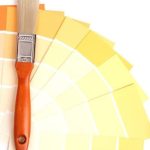What home improvement costs are tax deductible? Understanding which expenses qualify for tax deductions can help homeowners save money while enhancing their property. The Internal Revenue Service (IRS) provides guidelines on what home improvement costs are eligible for tax deductions, allowing individuals to maximize savings on their taxes.
Whether renovating a kitchen, adding a new bathroom, or making energy-efficient upgrades, knowing what home improvement costs are tax deductible is essential. By taking advantage of these deductions, homeowners can offset some of the expenses incurred during home improvements and potentially receive a refund from the government. It is crucial to understand the IRS guidelines to ensure that all eligible expenses are properly accounted for when filing taxes.
The types of home improvement costs that are tax deductible vary, ranging from repairs and renovations that increase the value of the property to medical-related modifications for accessibility purposes. It is important to differentiate between deductible and non-deductible expenses to accurately claim tax benefits. Homeowners should keep detailed records of all expenses related to home improvements to support their deduction claims and avoid any potential issues with the IRS.
Importance of Knowing What Home Improvement Costs Are Tax Deductible
When it comes to home improvement projects, understanding which costs are tax deductible can make a significant difference in maximizing your tax savings. Knowing what expenses can be offset against your taxes allows you to make strategic decisions about where to invest your money for renovations or upgrades. By being informed about the IRS guidelines on deductible home improvement costs, homeowners can benefit from potential tax breaks and reduce their overall tax liability.
To help you navigate the complexities of tax deductions for home improvements, here are some key points to consider:
- – Improve Your Home’s Energy Efficiency: Expenses related to making your home more energy efficient, such as installing solar panels, energy-efficient windows, or insulation, may qualify for tax deductions.
- – Medical Necessity Modifications: If you make changes to your home that are necessary for medical reasons, such as adding a ramp or accessible bathroom for a disabled family member, those expenses could potentially be tax deductible.
- – Home Office Deductions: If you use part of your home regularly and exclusively for business purposes, you may be able to deduct expenses related to improvements made to that space.
Understanding what home improvement costs are tax deductible not only helps reduce your overall tax bill but also encourages homeowners to make investments in their properties that can increase their value in the long run. By taking advantage of these deductions, you can make informed decisions about how to allocate your resources towards renovations and upgrades that offer both aesthetic appeal and financial benefits.
IRS Guidelines on Deductible Home Improvement Costs
The Internal Revenue Service (IRS) provides guidelines on what home improvement costs are tax deductible, allowing homeowners to potentially save money when it comes to their taxes. Understanding these guidelines is crucial for maximizing tax savings and ensuring compliance with IRS regulations. By knowing which home improvement expenses qualify for tax deductions, individuals can make strategic decisions about their renovation projects.
According to the IRS, home improvement costs that increase the value of your property, prolong its life, or adapt it to new uses may be tax deductible. This can include expenses related to making your home more energy efficient, such as installing solar panels or upgrading insulation.
Additionally, any improvements made for medical purposes, like adding ramps or handrails for mobility issues, may also be eligible for tax deductions. It’s important to keep detailed records and receipts of all home improvement expenses in case you need to provide documentation to the IRS.
One example of a non-deductible home improvement cost is regular maintenance and repairs. While these expenses are necessary for upkeep, they typically do not qualify for tax deductions unless they are part of a larger improvement project. Understanding the distinction between deductible and non-deductible costs can help homeowners accurately report their expenses and take full advantage of potential tax savings.
| IRS Guidelines | Home Improvement Costs |
|---|---|
| Increase Property Value | Qualify for Tax Deductions |
| Energy Efficiency Improvements | Potentially Tax Deductible |
| Medical-related Home Improvements | May Be Eligible for Deductions |
Types of Home Improvement Costs That Are Tax Deductible
When it comes to home improvement costs, it is important for homeowners to understand which expenses may be tax deductible. Knowing what home improvement costs are eligible for tax deductions can help reduce the overall tax burden and maximize savings. The Internal Revenue Service (IRS) provides guidelines on the types of home improvement costs that qualify for tax deductions, offering homeowners the opportunity to potentially offset some of their expenses.
Here are some types of home improvement costs that are typically tax deductible:
- Energy-efficient upgrades: Making energy-efficient improvements to your home, such as installing solar panels or energy-efficient windows, may qualify for tax deductions under the Residential Energy Efficient Property Credit.
- Medical necessity modifications: Home improvements made for medical reasons, such as adding ramps or widening doorways for accessibility, may be tax deductible if they meet certain criteria.
- Home office expenses: If you use a portion of your home exclusively for business purposes, you may be able to deduct a percentage of your home improvement costs related to that space.
It is important to keep detailed records and receipts of all eligible expenses in order to claim these deductions accurately. Consulting with a tax professional can also help ensure that you are taking full advantage of any available deductions related to your home improvement projects. By understanding which types of home improvement costs are tax deductible, homeowners can make informed decisions about their projects and potentially save money in the long run.
Examples of Non-Deductible Home Improvement Costs
When it comes to home improvement costs, not all expenses are tax deductible. It is important for homeowners to understand which costs can be deducted from their taxes and which cannot. Knowing what home improvement costs are non-deductible can prevent any surprises come tax season and ensure that individuals do not mistakenly claim deductions that are not allowed.
One common example of a non-deductible home improvement cost is general maintenance and repairs. The Internal Revenue Service (IRS) considers these expenses as part of regular upkeep rather than improvements that increase the value of the property. This includes tasks such as fixing a leaky roof, painting walls, or repairing a broken appliance. While these maintenance costs are necessary for maintaining the property, they do not qualify for tax deductions.
Another type of non-deductible home improvement cost is personal expenses that do not directly contribute to the value of the property. For example, installing a new swimming pool or adding a luxury feature like a hot tub may enhance the homeowner’s enjoyment of their property but does not typically increase its overall value.
These types of improvements are considered personal in nature and therefore cannot be claimed as tax deductions. It is important to distinguish between upgrades that simply add comfort or aesthetic appeal versus those that truly improve the property’s market value.
Additionally, any improvements made to rental properties or vacation homes may also fall under non-deductible expenses if they are purely for personal use rather than for income-generating purposes. It is essential for homeowners to keep detailed records of their home improvement expenses and seek advice from a tax professional to accurately determine what costs can be claimed as deductions on their taxes and what home improvement costs are not tax deductible.
How to Claim Tax Deductions for Home Improvement Costs
When it comes to home improvement projects, many homeowners are eager to know what expenses can be tax deductible. Understanding how to claim tax deductions for home improvement costs can help individuals maximize their savings and make the most of their investments in their properties. Whether it’s a renovation, repair, or energy-efficient upgrade, knowing what can be deducted on your taxes can make a significant difference in your overall financial planning.
Keeping Detailed Records
One crucial step in claiming tax deductions for home improvement costs is keeping detailed records of all expenses related to the project. This includes receipts, invoices, contracts, and any other documentation that proves the amount spent on the improvements. Having organized records will not only make it easier to claim deductions but also serve as evidence in case of an audit by the IRS.
Identifying Eligible Expenses
To claim tax deductions for home improvement costs, it’s essential to identify which expenses are eligible for deduction according to IRS guidelines. Generally, expenses that increase the value of your property or extend its useful life can be deductible.
This includes renovations like adding a new roof, installing solar panels, updating heating and cooling systems, and making accessibility improvements. It’s important to consult with a tax professional or refer directly to IRS publications to ensure you are claiming the correct expenses.
Filing Your Taxes Correctly
When filing your taxes, there are specific forms and procedures for claiming deductions on eligible home improvement costs. Depending on the nature of the improvements and your individual circumstances, you may need to fill out additional forms or provide supplementary documentation.
It’s advisable to seek guidance from a tax professional or utilize online resources provided by the IRS to accurately report and claim your deductions. By following the necessary steps and complying with IRS regulations, you can potentially save money on taxes while enjoying the benefits of a more updated and valuable home.
Tips for Maximizing Tax Savings on Home Improvement Expenses
The key to maximizing tax savings on home improvement expenses lies in understanding what home improvement costs are tax deductible. By identifying eligible expenses, homeowners can take advantage of tax deductions provided by the IRS and potentially save money on their taxes. Deductible home improvement costs can include a wide range of expenses, such as those related to energy efficiency upgrades, medical necessity modifications, or general repairs and renovations.
One important factor to consider when determining tax deductible home improvement costs is whether the improvements add value to the property. The IRS guidelines specify that only improvements that add value to the home or prolong its useful life are eligible for tax deductions. For example, installing a new roof or upgrading to energy-efficient windows may qualify as deductible expenses, while regular maintenance tasks like painting or landscaping typically do not.
It’s also crucial to keep detailed records of all home improvement expenses in order to claim tax deductions accurately. Homeowners should retain receipts, invoices, and contracts related to the improvements made to their property. Additionally, it is recommended to consult with a tax professional or accountant who can provide guidance on which home improvement costs are tax deductible and help maximize potential savings.
| Eligible Home Improvement Costs | Non-Deductible Home Improvement Costs |
|---|---|
| Energy-efficient upgrades | Maintenance tasks like painting |
| Medical necessity modifications | Luxury additions like swimming pools |
| Repairs and renovations that add value | Cosmetic enhancements without added value |
Common Misconceptions About Home Improvement Costs and Tax Deductions
When it comes to home improvement projects, understanding which costs can be tax deductible is crucial for maximizing savings and ensuring compliance with IRS regulations. Despite the potential benefits, there are several common misconceptions about home improvement costs and tax deductions that homeowners should be aware of.
Myth: All Home Improvement Costs Are Tax Deductible
One common misconception among homeowners is that every expense related to home improvement projects can be deducted from their taxes. However, not all home improvement costs are eligible for tax deductions. The IRS has specific guidelines on what qualifies as deductible expenses, so it’s important to understand these criteria before claiming any deductions.
Myth: DIY Projects Are Automatically Tax Deductible
Another misconception is that do-it-yourself (DIY) projects automatically qualify for tax deductions. While certain DIY home improvements may be eligible for deductions, there are limitations and restrictions set by the IRS. It’s essential to differentiate between personal expenses and those that contribute to the improvement or value of your property when determining tax-deductible costs.
Myth: Home Improvements Always Increase Property Value for Tax Deductions
Some homeowners assume that any home improvement project will automatically increase the value of their property and qualify for tax deductions. However, not all improvements directly translate to increased property value in the eyes of the IRS. Understanding how different types of improvements can impact your property’s value and tax deductibility is crucial when planning your projects.

Conclusion
In conclusion, understanding what home improvement costs are tax deductible can provide homeowners with significant benefits when it comes to maximizing their tax savings. By adhering to IRS guidelines and being aware of the types of expenses that qualify for deductions, individuals can make informed decisions when making improvements to their homes. It is essential to keep accurate records and receipts for all eligible expenses in order to successfully claim deductions during tax season.
Moreover, knowing what home improvement costs are tax deductible allows homeowners to plan their projects strategically and potentially save money in the long run. By taking advantage of available deductions, individuals can offset some of the expenses associated with maintaining and improving their properties. This not only helps reduce the financial burden of home renovations but also encourages investment in energy-efficient upgrades and other eligible improvements.
Overall, taking the time to educate oneself on the topic of tax deductible home improvement costs can lead to valuable savings and a better understanding of how these expenses can benefit homeowners financially. By dispelling common misconceptions and following best practices for claiming deductions, individuals can make the most out of their home improvement projects while ensuring compliance with IRS regulations.
As such, staying informed and proactive about tax implications related to property improvements is key to maximizing potential savings and optimizing one’s overall financial well-being.
Frequently Asked Questions
What Home Improvements Are Tax Deductible IRS?
IRS allows tax deductions for certain home improvements that qualify as medical expenses under specific circumstances. These include modifications to a home to accommodate a disability, such as adding ramps or widening doorways. It’s important to keep detailed records and consult with a tax professional.
What Capital Improvements Are Tax Deductible?
Capital improvements that increase the value of your property can be tax-deductible under certain conditions. Repairs to maintain the current condition of your property are not deductible, but improvements like adding a new room or renovating the kitchen may qualify. To claim these deductions, you need to keep accurate records of costs and consult with a tax advisor.
Are Improvements to Home Office Tax Deductible?
Improvements made to a home office can be tax-deductible if they are directly related to the business conducted in that space. This includes renovations, repairs, and maintenance costs for the designated home office area. Keep thorough documentation of expenses and consult with a tax expert to ensure compliance with IRS regulations.

I’m thrilled to have you here as a part of the Remodeling Top community. This is where my journey as an architect and remodeling enthusiast intersects with your passion for transforming houses into dream homes.





